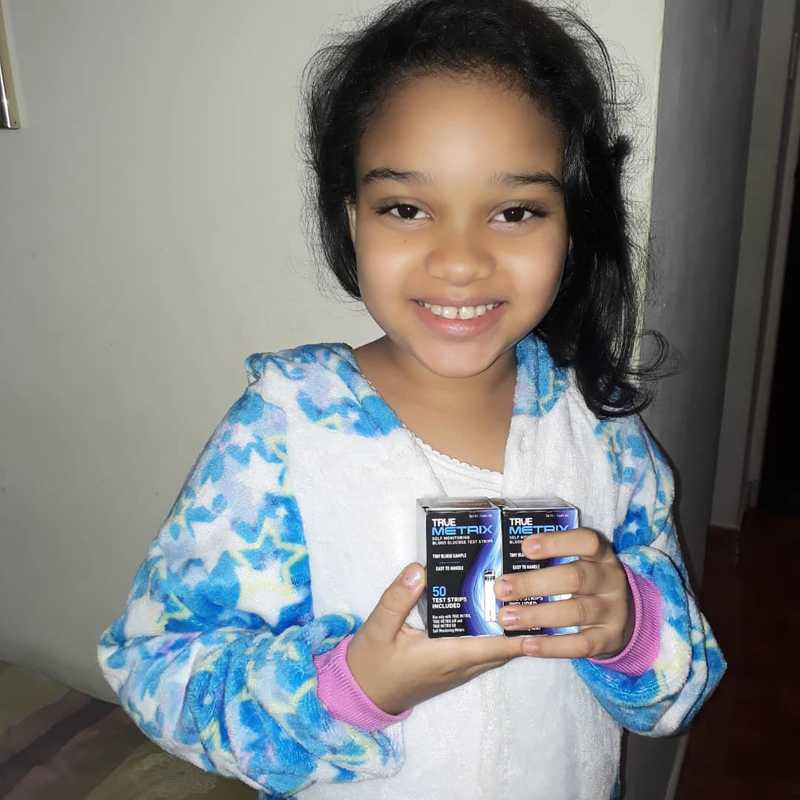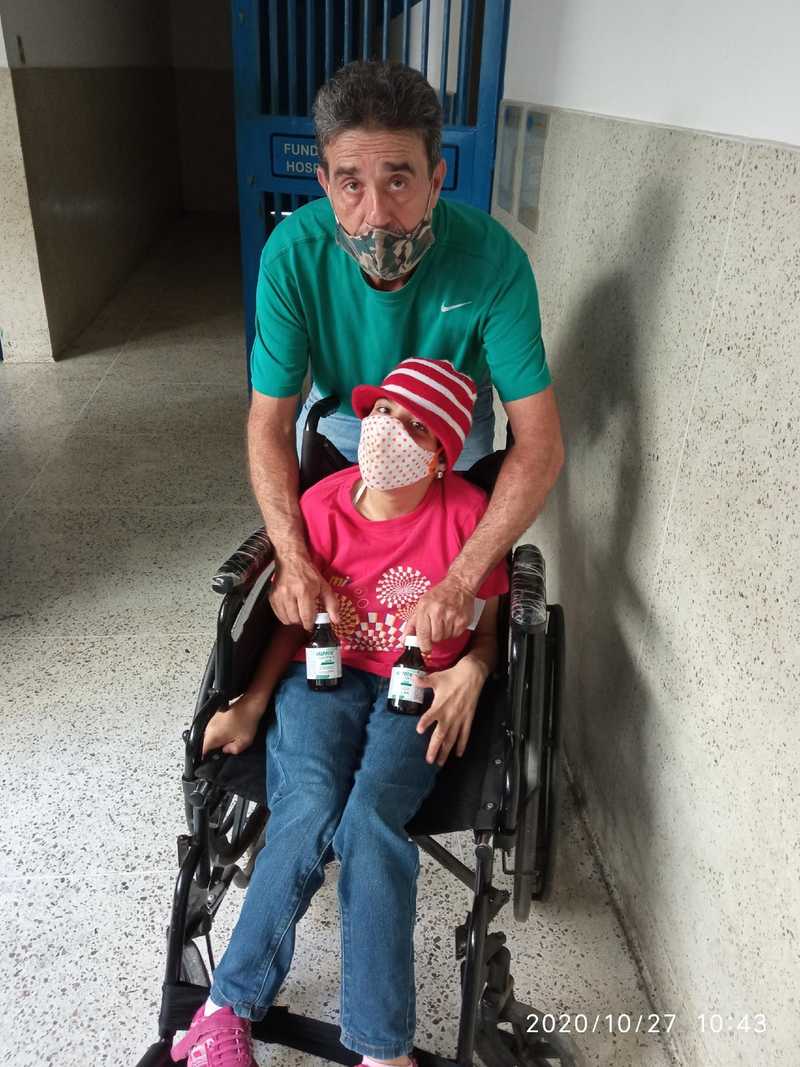Waterfall Humanitarian Foundation
End of Year Report for 2021
Financial Report
We received a 30% increase in donations in 2021 compared to 2020, and that allowed us to increase our help to the Children’s Hospital by 75%. We have also been able to decrease the cost of shipping to the hospital and have maintained our level of administration expenses to less that 3% of our donations. As you already know, everyone in our foundation is a volunteer, and nobody received salaries or stipends. As much as possible all funds donated go to help children in Venezuela.
Ongoing Programs
The report of this year’s activities illustrate the efforts of the foundation for the last several years. The epilepsy medicines have been sent since 2019, and the glucometers, strips and lancets since 2017. With the last shipments, we have sent almost 300 glucometers, about 200 children have received their glucometers, and we expect that 10 to 15 new children per month will receive them in the next six months. Dozens of children depend on the anticonvulsant medicines sent for epilepsy, similar to the child depicted in the image below...
The foundation has also sent a limited number of COVID-19 rapid test kits, which help the hospital detect cases in children seeking hospitalization.
We will continue these programs into 2022.
Activities with other Organizations
LDS Charities: The foundation continues to work with the LDS Charities on the donation of an endoscopy equipment to the J.M. de los Rios Children’s Hospital. The Waterfall Foundation presented the opportunity to help to the LDS Charities both at the Country and Area level, and in Salt Lake City; subsequently made the introductions, assisted the Foundation of the Children’s Hospital in filling out the required written request. The request was approved at the country, area, and headquarters’ levels. The equipment has been purchased and sent to Venezuela, and is now in customs. The equipment, is highly advances and of top quality which has been assessed additional customs fees, which have already been paid, yet the equipment has not been released as of yet.
Co-Diagnostics: The foundation has been discussing with Co-Diagnostics. Inc., its decision to donate an initial package of qPCR diagnostic equipment, peripherals, related consumables and qPCR tests to Fundación Patronato del Hospital JM de los Ríos ("Foundation") in Caracas, Venezuela. This includes a Bio Molecular Systems (BMS) MIC 48-well qPCR analytical device capable of running up to 46 tests (+1 positive/1 negative control) per batch, a Microsoft Surface(tm) laptop computer installed with BMS software to link to the MIC for readout and analysis, MIC tubes (1 per test), a mini-centrifuge, and 1,000 qPCR tests shipped in dry ice, the composition of tests to be determined by the Waterfall Humanitarian Foundation in conjunction with the Children’s hospital. The foundation has discussed this donation with the Children’s Hospital Foundation and found that the required clean room is available at the hospital.
The tests this equipment can perform include COVID-19, Malaria, Zika, dengue, chikungunya, and tuberculosis. Thus, the importance of this donation far transcends COVID-19 pandemic. These tests have been widely used and approved in the USA and Europe.
Planning for expansion of humanitarian assistance
The Waterfall Humanitarian Foundation is actively preparing to expand our assistance both in continuing programs and in new areas considered crucial for children and families in Venezuela, as follows:
Expansion of assistance to children with diabetes mellitus
In our project helping children at the J.M. de los Rios Children’s Hospital in Caracas, our foundation had come across a non-profit organization called Guerreros Azules that is helping more than 600 children and adolescents with diabetes throughout Venezuela. Our foundation will be prepared to extend assistance through them throughout the country.
Improving and deepening the assistance to children with epilepsy.
While the assistance given to children with epilepsy at the present time is crucial, it is very basic. Our foundation has established relations with the company EnlitenAI, in California, a company leader in addressing epilepsy treatment on a personalized basis. EnlitenAI recognizes the importance of frequent observations of changes in behavioral patterns in the diagnosis and effective treatment of most neurological conditions. A team of Neurologists and Data Scientists at EnlitenAI has built a Connected AI powered SaaS platform. The immediate focus is on Epilepsy and personalized management of Seizures, working with multiple Neurosciences Centers – University of California San Francisco (UCSF), Univ. of Utah and UW-Seattle. In fact, world renowned UCSF will be conducting Clinical trials. EnlitenAI can pilot and strengthen the treatment of neurologists in Venezuela through state-of-the-art AI, and our foundation will participate in bringing and piloting this technology.
EnlitenAI has proposed that the Children’s Hospital in Venezuela join the testing of the Artificial Intelligence product by conducting a 20-person controlled test. EnlitenAI will provide—free of charge-- the equipment to the children to monitor their epilepsy, and they will be able to keep it. The initial discussion with the Foundation of the Hospital indicate that a small expense will have to be defrayed by the Waterfall Humanitarian Foundation—through the Hospital’s Foundation—to assist the doctors overseeing the clinical test. These matters are under discussion.
If the foundation receives the proper funding, it would be wise to consider additional investment in EnlitenAI—up to $3 million dollars-- and help this state-of-the art technology to expand worldwide, thus benefiting children in many countries. EnlitenAI is in the final stages of releasing the product, that includes a wristwatch to measure and report brainwaves in epileptic children, thus giving valuable monitoring to neurologist involved, and allowing the artificial intelligence of the system assist the medical profession in taking steps to ameliorate the suffering of the patients.
Donation of Crucial equipment
The Children’s Hospital is in dire need of a 64-slice CT scanner, that is standard for hospitals, health systems, and imaging centers. Advanced studies, such as cardiac, can be performed due to the reduced scan times and advanced technology. The speed and accuracy that comes with a 64-slice scanner reduces scan times and is suited for practices with moderate to high patient volumes. In times of COVID-19, given that heart and pulmonary complications are consequences of the pandemic, the CT-Scan with all ancillary software is sorely needed.
The foundation has been exploring the donation of an advanced system for COVID-19 RNA testing equipment.
Telemedicos
The foundation recently wrote the Executive description of the “Telemedicos System.” The concept of Telemedicos began as a system that matches thousands of doctors who have sought refuge outside Venezuela, and also other doctors in the USA and other countries, with former patients and new patients, remotely, within the country and from abroad. Telemedicos offers a solution to the urgent need of medical assistance. Telemedicos will be an international solution-driven IT platform, to address the health needs of patients worldwide, providing consultation, diagnosis, and treatment of a multiplicity of ailments in all countries that would permit such activity, starting in Venezuela.
Venezuela is a good place to pilot Telemedicos, of which not too many years ago, a similar incipient effort was spearheaded by the Universidad Central, with assistance from companies like Microsoft and Cisco. The foundation is aware and in touch with some of the players that were once active in this project and still are interested in seeing it through, but now with the full backing, funding, and experience of Waterfall Foundation’s teams in the USA.
Expansion of donation of testing equipment
Due to the fact that detection of Zika, Dengue, Malaria, besides COVID-19 are of great importance at children and adult hospitals in Venezuela, the foundation will consider donation of similar equipment to other hospitals, contingent upon success at the Children’s hospital.

